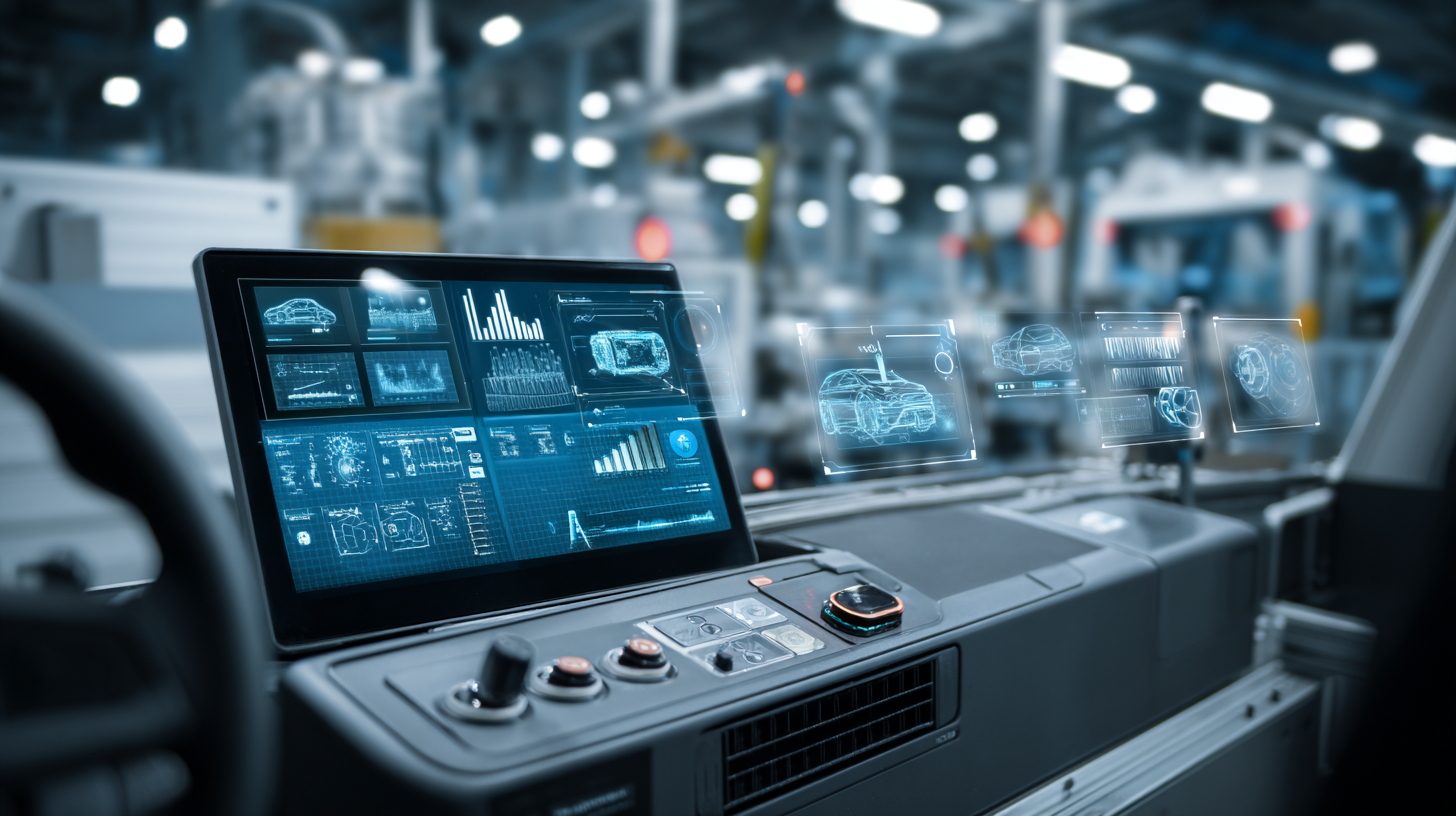In the rapidly evolving landscape of modern businesses, the advent of industry automation solutions is playing a pivotal role in shaping the future of work. As organizations seek to enhance efficiency and streamline operations, these innovative technologies offer a pathway to not only reduce costs but also improve productivity and creativity within the workforce.
 By automating routine tasks and leveraging data-driven insights, businesses can empower their employees to focus on more strategic initiatives that drive growth and innovation. This transformation is not merely about replacing human labor; rather, it involves a synergistic approach where automation complements and amplifies human potential. In this context, understanding how to effectively integrate and implement industry automation solutions becomes crucial for leaders aiming to navigate the complexities of the modern marketplace and foster a resilient and agile organizational culture.
By automating routine tasks and leveraging data-driven insights, businesses can empower their employees to focus on more strategic initiatives that drive growth and innovation. This transformation is not merely about replacing human labor; rather, it involves a synergistic approach where automation complements and amplifies human potential. In this context, understanding how to effectively integrate and implement industry automation solutions becomes crucial for leaders aiming to navigate the complexities of the modern marketplace and foster a resilient and agile organizational culture.
The integration of automation solutions into modern businesses is significantly reshaping workforce dynamics and job roles. As industries adopt advanced technologies like artificial intelligence and robotics, the nature of work is evolving, resulting in both opportunities and challenges for employees. Routine and repetitive tasks are increasingly being handled by machines, allowing human workers to focus on more complex, creative, and strategic activities. This shift not only enhances productivity but also requires a workforce that is skilled in technology and adaptable to change.
However, the rise of automation also raises concerns about job displacement. Many traditional positions are at risk as machines take over tasks once performed by humans. This transition calls for a proactive approach to workforce development, emphasizing the need for reskilling and upskilling initiatives that prepare workers for the jobs of the future. Companies must invest in training programs that help employees acquire new competencies that align with the demands of an automated workplace, ensuring that they can thrive in an evolving job landscape. As a result, the future of work will require a collaborative relationship between humans and technology, transforming roles rather than eliminating them.
As industries evolve, automation solutions stand at the forefront, revolutionizing how businesses operate. Key technologies such as Artificial Intelligence (AI), Robotics, and the Internet of Things (IoT) are driving this transformation. AI enables predictive analytics, helping organizations anticipate market shifts and customer needs more accurately. Meanwhile, robotics streamlines manufacturing processes, enhancing efficiency and reducing human error. The integration of IoT facilitates real-time data collection and monitoring, allowing businesses to optimize their operations proactively.
**Tip:** To successfully implement automation technologies, businesses should prioritize training their workforce. Ensuring that employees are equipped with the necessary skills will not only smooth the transition but also foster a culture of innovation.
Another significant technology is cloud computing, which provides scalable solutions that can adjust to varying business demands. It allows companies to manage resources more flexibly and collaborate seamlessly across teams and locations. As these technologies converge, they create a connected ecosystem that enhances productivity and drives growth.
**Tip:** Start small by automating routine tasks to demonstrate the benefits of automation. This can build excitement and support for larger projects down the line, as employees see firsthand the positive impact on their work processes.
 The implementation of automation solutions has become a cornerstone for businesses aiming to enhance operational efficiency. By automating repetitive tasks, companies can reduce the risk of human error, allowing for greater accuracy and consistency in their processes. This not only saves time but also liberates employees from mundane duties, enabling them to focus on more strategic and value-added activities. As a result, the workforce can thrive in a more engaging environment, where innovation and creative problem-solving take precedence over routine tasks.
The implementation of automation solutions has become a cornerstone for businesses aiming to enhance operational efficiency. By automating repetitive tasks, companies can reduce the risk of human error, allowing for greater accuracy and consistency in their processes. This not only saves time but also liberates employees from mundane duties, enabling them to focus on more strategic and value-added activities. As a result, the workforce can thrive in a more engaging environment, where innovation and creative problem-solving take precedence over routine tasks.
Moreover, automation facilitates better resource management and optimization. Businesses can achieve higher productivity rates while minimizing costs, leading to improved profit margins. With real-time data analysis and reporting, companies can make informed decisions swiftly, adapting to market changes with agility. The overall effect of these automation solutions is a streamlined workflow that ultimately drives growth and competitiveness in the modern business landscape, positioning organizations to meet the challenges of a rapidly evolving economy.
Adopting automation strategies presents a variety of challenges that businesses must navigate carefully. One significant hurdle is the initial investment required for technology and training. Many organizations may find the costs associated with implementing automation solutions daunting, particularly if they lack a clear understanding of the long-term benefits. Additionally, integrating new systems with existing operations can be complex, often leading to potential disruptions during the transition phase. Companies must ensure a seamless integration to maintain productivity and service quality.

Another critical consideration involves managing workforce dynamics. The fear of job displacement can lead to resistance among employees, which can undermine the effectiveness of automation initiatives. Organizations need to adopt a proactive approach in addressing these concerns by providing reskilling and upskilling opportunities. Encouraging employee involvement in the automation process and communicating the potential for enhanced roles can foster a culture of adaptability. As businesses strive to leverage automation, these challenges underline the importance of strategic planning and stakeholder engagement for successful implementation.
The evolving landscape of work in an automated world is characterized by a dynamic shift towards greater efficiency and innovation. As industries increasingly adopt automation technologies, the traditional workplace is transforming into a more fluid environment where humans and machines collaborate seamlessly. This integration offers unprecedented opportunities for productivity, allowing employees to focus on higher-value tasks while automation handles routine processes. The demand for skilled workers who can manage and optimize these advanced systems is also rising, signaling a shift in the skill sets required for the future workforce.
Moreover, the impact of automation extends beyond productivity enhancements. It reshapes organizational structures and employee roles, fostering a culture of continuous learning and adaptation. Companies are now investing in training programs to equip their workforce with the necessary skills to thrive in this new reality. As remote work becomes more prevalent, automation tools are facilitating communication and collaboration across geographies, leading to more inclusive and diverse work environments. Ultimately, as businesses embrace these changes, the future of work promises to be not only more efficient but also more engaging and empowering for employees.
| Automation Technology | Application Area | Impact on Workforce | Projected Growth (2023-2027) |
|---|---|---|---|
| Robotic Process Automation (RPA) | Finance and Accounting | Reduced manual tasks, allowing focus on analysis | 25% |
| Artificial Intelligence (AI) | Customer Service | Enhanced customer interaction through chatbots | 30% |
| Machine Learning | Data Analysis | With faster and more accurate insights, decisions improve | 35% |
| Cloud Computing | Remote Work Solutions | Flexible work environments leading to higher productivity | 40% |
| Internet of Things (IoT) | Manufacturing | Real-time tracking and efficiency optimization | 45% |